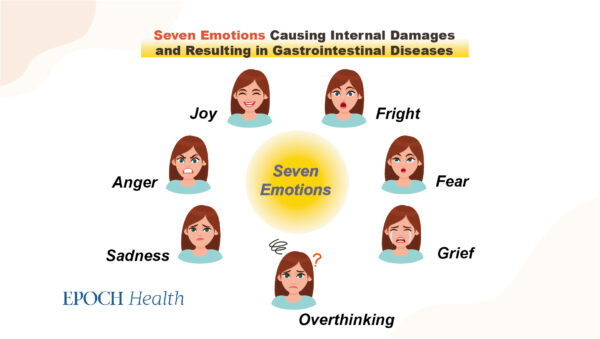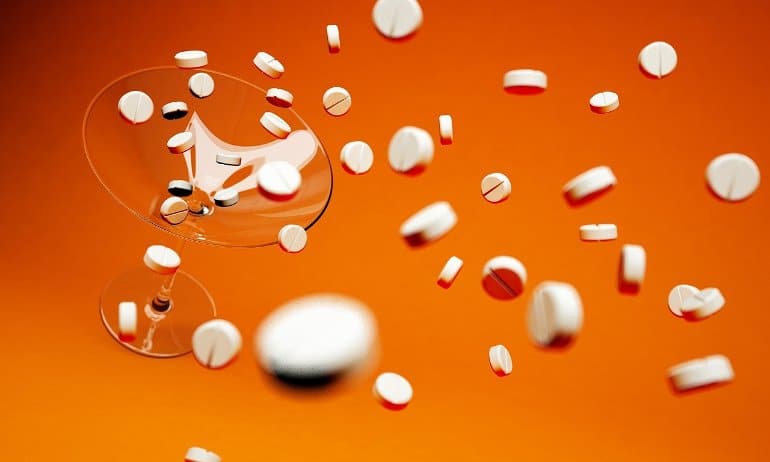
(Prostock-studio/Shutterstock)
Water consumption is essential for human survival and ensures the proper functioning of our bodies. Water transports nutrients throughout the body and regulates metabolism to enhance its resistance to diseases.
An ongoing debate in the health community has been about when and how much water we should drink. Is drinking a glass of water on an empty stomach in the morning good for health? Should we drink water before bed?
Dr. Wu Kuo-pin from Xinyitang Health Clinic in Taiwan warns us that drinking water at the wrong hours can weaken gut health.
Water in the Morning Causes Bloating
There is a Chinese saying: A healthy gut is a youthful body. Some people believe that a glass of water on an empty stomach in the morning can clean the digestive tract and activate the gastrointestinal system.
However, Wu thinks differently. Wu points out that the human core body temperature is at its lowest in the morning. Our core body temperature begins to rise when we start getting up.
“Our body temperature rises to the highest in the evenings and then slowly drops again to the next morning. That is why the temperature of our internal organs is at the lowest in the morning,” the doctor explains.
According to Wu, since the core body temperature only rises when we get up in the morning, drinking a glass of water will inhibit the physiological function of our internal organs because the nature of the water is “yin” and “soft” in traditional Chinese medicine (TCM) diagnosis.
Clinically, Wu also discovered that people who drink water in the morning tend to have spleen deficiency, gastrointestinal flatulence, indigestion, edema, fatigue, constipation, dizziness, and heart palpitations—and some of the symptoms can be invisible.
When our spleen weakens, it causes dampness, resulting in atopic dermatitis or eczema.
Some also believe that hydration at sunrise can improve constipation. But the doctor reminds us, “It depends on your physical condition. Those who work out heavily in the morning need to rehydrate more. But for those with spleen deficiency, drinking water in the morning will overwork their stomach.”
What about the theory of not drinking water at night?
Wu explains, from the perspective of diluted blood concentration to reduce stroke, drinking water an hour before bed is good for your health.
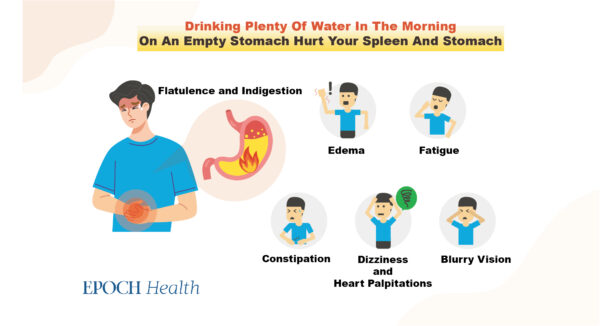
Best Time to Drink Water to Maximize Health Benefits
The spleen and stomach are located in the center of the human body, called San Jiao in TCM.
Dr. Li Dongyuan, a famous doctor in the Jin Dynasty, believed that the source of all diseases are due to poor diet and physical exhaustion which cause stomach qi and vitality to dissipate.
A healthy diet is necessary to maintain the health of the body. If the spleen and stomach—responsible for digesting food—weaken, they cannot provide the energy the entire body requires.
So when is a good time to consume water?
Wu said since we are prone to spleen and kidney yang deficiency before meals, drinking water during a meal dilutes stomach acid, leading to indigestion.
Thus, he suggests drinking water an hour after a meal instead of before or during mealtime.
Breakfast: No water before a meal.
Lunch and dinner: No water before meals. You can have some soup before the main course. Then drink water an hour after meal time. You protect your stomach qi and enhance weight loss by alternating between food and water.
3 Eating Habits Cause Gastrointestinal Disorders
In addition to drinking water inappropriately, what other bad habits or lifestyles can cause gastrointestinal disorders?
Wu tells us that diet is critical and he further clarifies below.
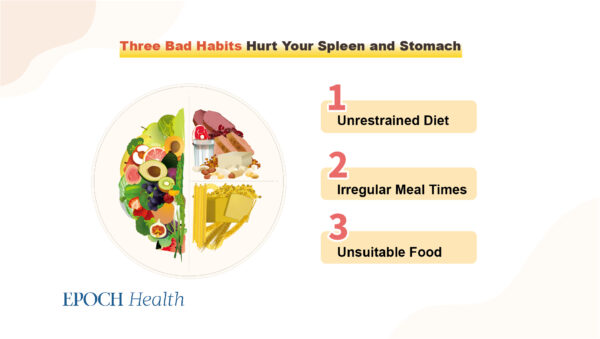
1. Unrestrained diet
Overeating and under-eating are both bad for our health. As the saying goes, “If you want your child to be content, you always keep them 70 percent full and warm.” We should eat until we are 70 percent full to avoid being too full and causing an upset stomach.
2. Irregular meal time: Stomach acid is not secreted due to food intake. Instead, the stomach secretes acid slightly when it is time for food. For instance, people who do not have lunch regularly for a prolonged period are prone to ulcers in the intestines and stomach.
The doctor warns us to avoid snacking between meals so the intestines and stomach have enough time to digest and metabolize, which is critical for losing weight.
It is best to give our body four to five hours for gastrointestinal digestion.
If breakfast is at 7 a.m., it is best to have lunch at noon. Since dinner usually happens later in the afternoon or evening, it allows efficient time for our digestive system to rest and complete metabolizing.
However, a small quantity of food in multiple meals is recommended for those with special physical conditions. In addition, stop eating three hours before bed.
3. Unsuitable food: Consuming too much raw and cold food, such as tap water and raw meat, will cause problems with parasites and will also trigger symptoms of lower body temperature and blood coagulation. Poor blood circulation can seriously cause thrombosis and blood clotting.
Why Are Boiling Water and Selecting Water Also Important?
From Wu’s experience, he tried boiling water with clay, iron, and stainless steel pots. His family unanimously agreed that the water boiled from the clay pots was the best-tasting water.
He believes that the clay breaks down water molecules, hence better-tasting water. In addition, the nature of tap water changes to mild in the clay pot, which is also better for the body.
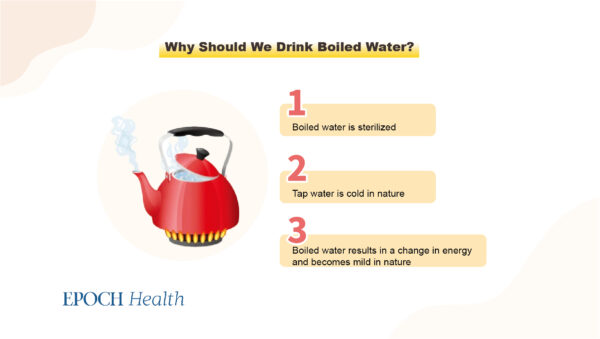
Suitable types of water vary according to an individual’s physical condition.
For example, alkaline water is considered cold in nature, so it is more for people with a dry and hot body, high blood pressure, and short temper. People with cold and weak bodies should avoid alkaline water.
In addition, when you are not feeling well, you should first drink warm water. It helps dilute inflammatory substances and blood concentrations.
Finally, Wu adds, “Anxiety and overthinking hurts the spleen.” which means that being too worried or thinking too much—to the extent of not eating or drinking—will affect the operation of the spleen and stomach.
So cultivate your body and mind, let your emotions relax and your stomach relax for better gut health. You can also learn to maintain your health by eating slowly and chewing well.
